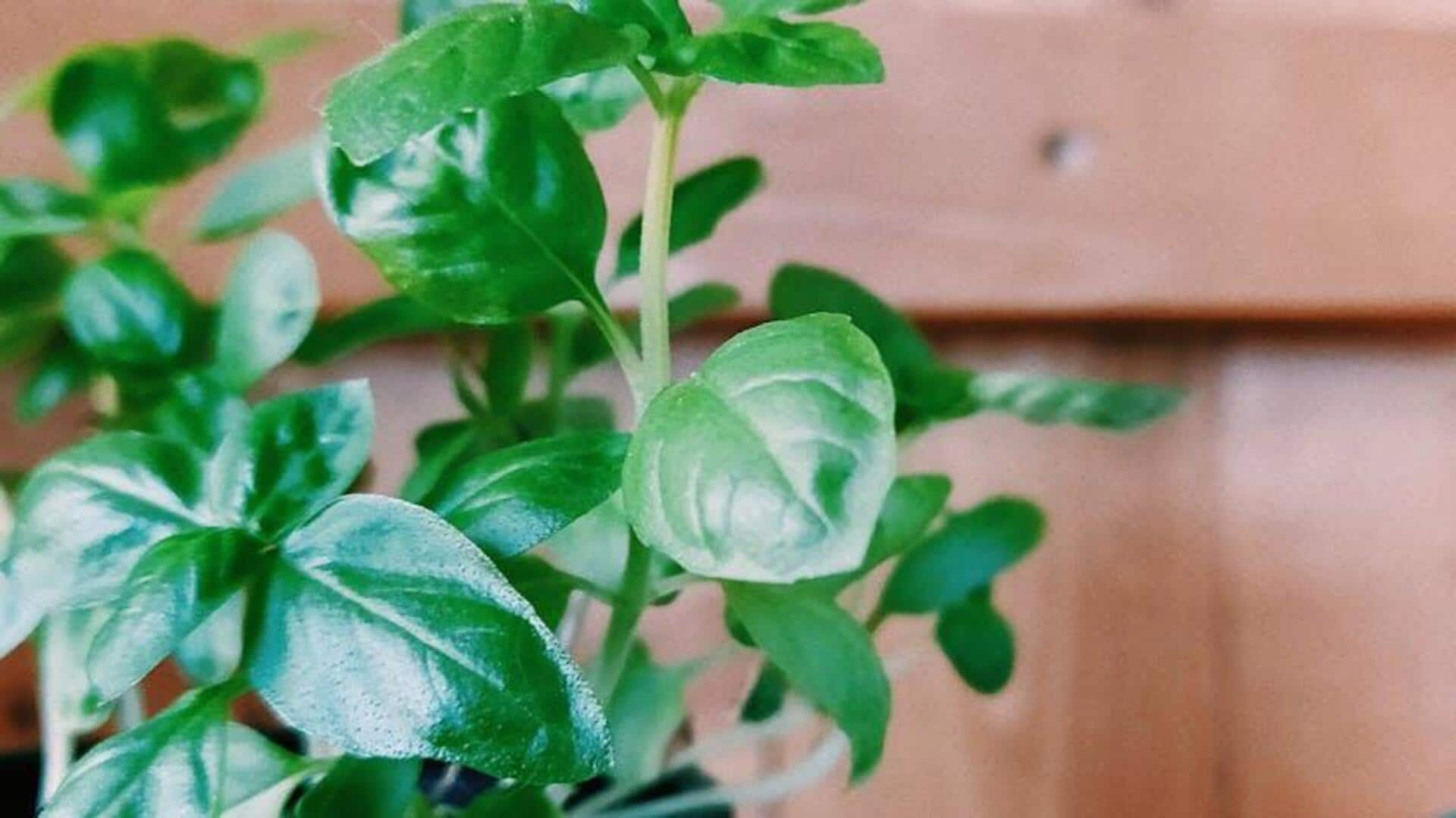
How to grow basil at home
What's the story
Growing basil hydroponically is an efficient way to ensure a constant supply of this aromatic herb in your kitchen. This method enables you to grow basil without soil, using nutrient-rich water solutions instead. It's perfect for people with limited space or want a year-round supply of fresh herbs. With some basic steps and guidelines, you can easily grow basil hydroponically and enjoy its fresh leaves whenever needed.
Setup basics
Setting up your hydroponic system
To begin growing basil hydroponically, you need a simple setup comprising containers, a water reservoir, and a pump system. Pick containers that allow roots to grow spread out comfortably. The reservoir should be spacious enough to hold the nutrient solution needed for the plants. A small pump would circulate the solution, resulting in even distribution of nutrients.
Nutrient selection
Choosing the right nutrient solution
Choosing the right nutrient solution is critical for healthy basil growth. Look for solutions specially formulated for leafy greens or herbs, as they have the right nutrients such as nitrogen, phosphorus, and potassium, in balanced proportions. Check pH levels regularly; they should ideally be between five point five and six point five for optimal absorption.
Lighting needs
Providing adequate light conditions
Basil needs plenty of light to thrive in a hydroponic setup. If you can't provide enough natural sunlight, LED grow lights make a great alternative. These lights should mimic the full spectrum of sunlight. Place them about 12 inches above the basil plants, making sure they receive between 14 and 16 hours of light each day. This regimen will encourage strong healthy growth in your hydroponic basil setup.
Growth monitoring
Monitoring growth and maintenance tips
Regular monitoring is key in maintaining healthy hydroponic basil plants. Frequent check water levels and top up as necessary with fresh nutrient solution every two weeks or when depleted by 50%. Prune regularly by pinching off leaves from the top; this encourages bushier growth rather than tall, spindly stems.